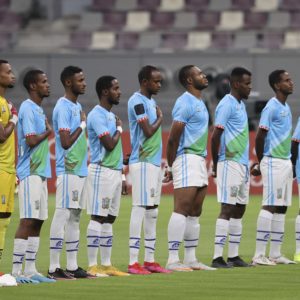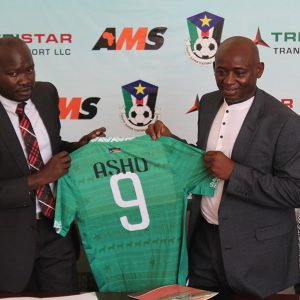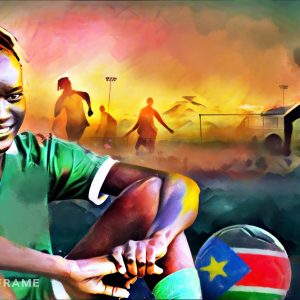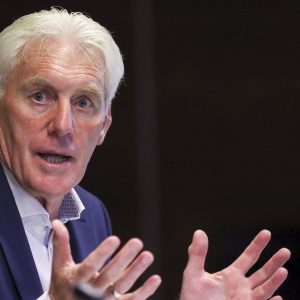Respect everybody, fear no one — Stefano Cusin
The Italian football nomad brings coaching experience on three continents to South Sudan as he aims to build a competitive national side in a country that is still finding its feet in the internati…
Author:
9 October 2021
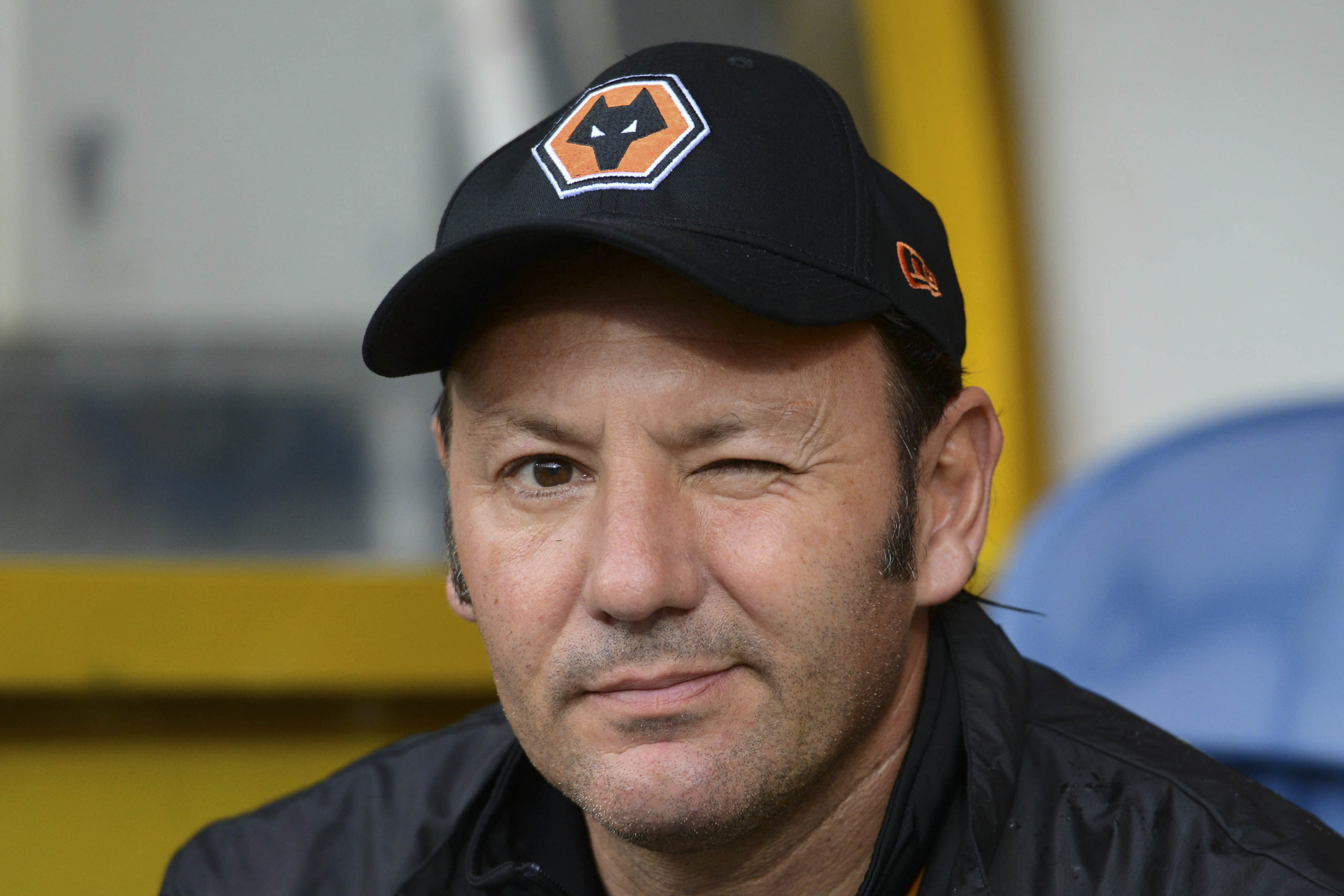
“I don’t listen to the news. I don’t care what they say,” says Stefano Cusin, the coach of South Sudan’s national football team. “I want to see it with my own eyes.”
The Italian has had an interesting coaching trajectory. He is an alumnus of the Italian elite coaching school in Coverciano, worked as an assistant at Wolverhampton Wanderers in England’s Championship and at a couple of the biggest clubs in the Middle East. He also won titles in Libya (before the overthrow of Muammar Gaddaffi), guided a small Palestinian club to historic glory and led an Iranian team to the Champions League group stage under the hardships of sanctions. In places that some would see as “trouble”, Cusin sees an opportunity.
“Maybe some people may think I am a loser, because I work in countries that face struggles and are not famous for their football. But for me I am a winner, because I get to meet people, help their football to grow, connect with them… and all of this through the game I love.”
Related article:
Now, Cusin faces his biggest challenge in managing the Bright Stars. “I am really excited. It was a big dream of mine coaching an African national team, and South Sudan is a big project. It’s not a sprint but a marathon. We are building something here,” he says in a call from his hotel room in the South Sudanese capital.
“Juba is a fast-growing place, it is in a constant state of building,” Cusin continues. “In front of my hotel, they are building five more hotels, all five stars. They are building the new national stadium, fixing the roads and the street lights, everything.
“For the world, it might sound weird that an Italian coach is working in South Sudan. But you simply cannot miss that this place is in a mass-process of creating and construction, and it’s inspiring me. Everything changes fast. We are building something new at a critical moment in this place’s football life”.
Experience in Africa
The Republic of South Sudan is the youngest country in Africa, and in many ways its football story is part of the nation-building fabric. For more than 50 years, Sudan experienced a changing state of a civil war between the Muslim north and the Christian south. The dispute kept the southern part of the country in an infrastructural crisis, an estimated 338 000 people died and heavy waves of displacement saw more than two million people flee the country in a short space of time.
After a successful referendum, South Sudan declared its independence from Sudan on 9 July 2011, in an act that was supposed to end the most prolonged conflict in Africa. Salva Kiir was voted the first president and the new country had hopes of a better future.
Related article:
But despite independence and the founding of the national team, things haven’t improved much. In 2013, after a dispute between Kiir and his deputy Riek Machar, another civil war broke out. South Sudan found itself in a rapidly growing humanitarian crisis that saw multiple killings, heavy famine, mass deportations and residents fleeing as part of the conflict between the government and the rebels.
Cusin, the holder of a Uefa Pro Licence, is a well-travelled coach who has experienced football on almost every continent. He is not new to African football. At the beginning of the millennium, he worked with the federations of the Republic of Congo and Cameroon to develop coaches and players. Later, he guided Ittihad Tripoli to the Libyan title in 2009.
“In Africa, players have the possibility to play all day long. Football is everywhere here. Street corners, amateur clubs, youth, pros… literally everywhere. As a coach, it’s a privilege to work in this great source of raw and ready talents.”
Countries under construction
He went from Africa to the Middle East, where he helped Inter Milan legend Walter Zenga at Al-Nassr in Saudi Arabia, and Al-Jazira Abu Dhabi and Al-Nasr Dubai in the United Arab Emirates. “In the Middle East, you need to understand the character of each player. Only then you’ll know how to guide him for improvement. The personal connection is the key there,” says Cusin.
Later, he took over Emirati side Fujairah as head coach, and in 2015 got an exciting and unexpected offer from Palestine. He became the coach of Ahli Al-Khaleel, a small club from Hebron, and just as in South Sudan he arrived at a place in the process of building. In the West Bank, aside from the building process, there is an ongoing occupation and military rule in certain parts by the Israeli army. Roadblocks, confrontations between the military and residents, barricades, players being arrested and referees arriving late at games after being delayed on the roads are commonplace.
But this did not stop Cusin from succeeding with the team. He guided Al-Ahli to their first derby victory (4-0 against Shabab Al-Khaleel) and four trophies in six months. Overall, he made Al-Ahli the best team in Palestine. But while the project in Hebron seemed to reach new heights, Cusin left after board members attempted to intervene in professional decisions. Although Cusin moved on a bit frustrated, the solid foundation he left at the club kept Al-Ahli at the top of the Palestinian game for three years in a row. In recent years Cusin worked in South Africa (a three-month stint as technical director at Black Leopards), Cyprus and Iran, before taking the South Sudanese job.

“In all these countries, I met wonderful people that for them, football is a pure moment of freedom. Away from the daily troubles. You are free to play, to feel, to be angry, to celebrate. This is what gives me the drive to work in such countries. It means more, and this is why I love being a football coach, especially in these places.”
This is why he didn’t think twice when the opportunity arose to go to Juba and take over the South Sudanese national team. “Look, I had a few past experiences that were poor, with presidents that got into my work. I was thrilled to see the approach to the project here in South Sudan.
“The good thing I forgot [is] how Africa is passionate about football,” says Cusin. “I forgot how 3 000 people are gathering around the field to see the first training. I forgot how much the life can be beautiful when the game is in every heartbeat of the people. I feel I am in the right place to make what I was looking for, a real project.”
Available talent
Cusin has been addicted to projects throughout his career. Not all have been successful, of course. “Project is key in football. When I am starting to coach a team, I am looking for a serious, well-rounded programme that lets me put one rock on another rock and in the end, we will build a house,” he says.
“Here, we are building a proud South Sudanese football structure. The home of South Sudanese football, if you would like.”
These days, developing football nations look for overseas players whose talents have been nurtured in more developed football countries but whose origins are in their country to anchor the national team. But Cusin thinks differently.
Related article:
“Before I started my job, I received a list of 25 players that are eligible from Australia, Scandinavia and all over the world. I checked and there are some interesting names, but I am very interested in what we have in South Sudan right now. I want to know who we can work with immediately.”
To work his magic in South Sudan, Cusin has some massive scouting and analysis to do. While he was impressed with some during his first days in the role, he doesn’t want to mention names. “It’s too early. My job is to understand what is the level of talent we have here in South Sudan, and the South Sudanese who play in other leagues in East and Central Africa. When we understand what we have in hand, we start building the team based on the most available source of talent.”
A gift for the country
The Bright Stars’ main aim is clear. “We want to participate in the Afcon [Africa Cup of Nations]. Not only to qualify but to compete. It will be a gift for this new country, it will be a gift for all South Sudanese all over the world, and a gift for my family and me, for sure.”
It might sound optimistic and straightforward, but South Sudan has a long way to go before rubbing shoulders with the best on the continent.
“We are lacking international experience. Our players don’t have enough international experience. But the ambition is to improve the players and to make the national team competitive. We will share respect for everybody, but fear no one. This is what I expect from my team,” says Cusin.
Related article:
“The appointment of Mr Stefano is the right step for the development of players’ skills,” said South Sudan Football Association president Madout Parek at the press conference, “and putting the national team on the right path of winning matches in the region, continent and the world at large.”
“The good thing in this project,” says Cusin, “is exactly what the president has said. We can work without the pressure of a one-time result, but building a project that will benefit this nation for years to come.”
Where does the South Sudan national team see themselves in 2024? “We will become a big challenger in Africa. Not an easy team to play,” Cusin says confidently.
“If I go to a team that wins all the time and they win with me as well, I haven’t done anything special. I am just another name in their list. What I love is to come to places that you can create, change, build, and make history and something important for the people. One day I’ll be gone, and I want my son to be proud that his father did something really big for the people of South Sudan.”

